Mafia: The Old Country (Series X): A Beautiful Façade
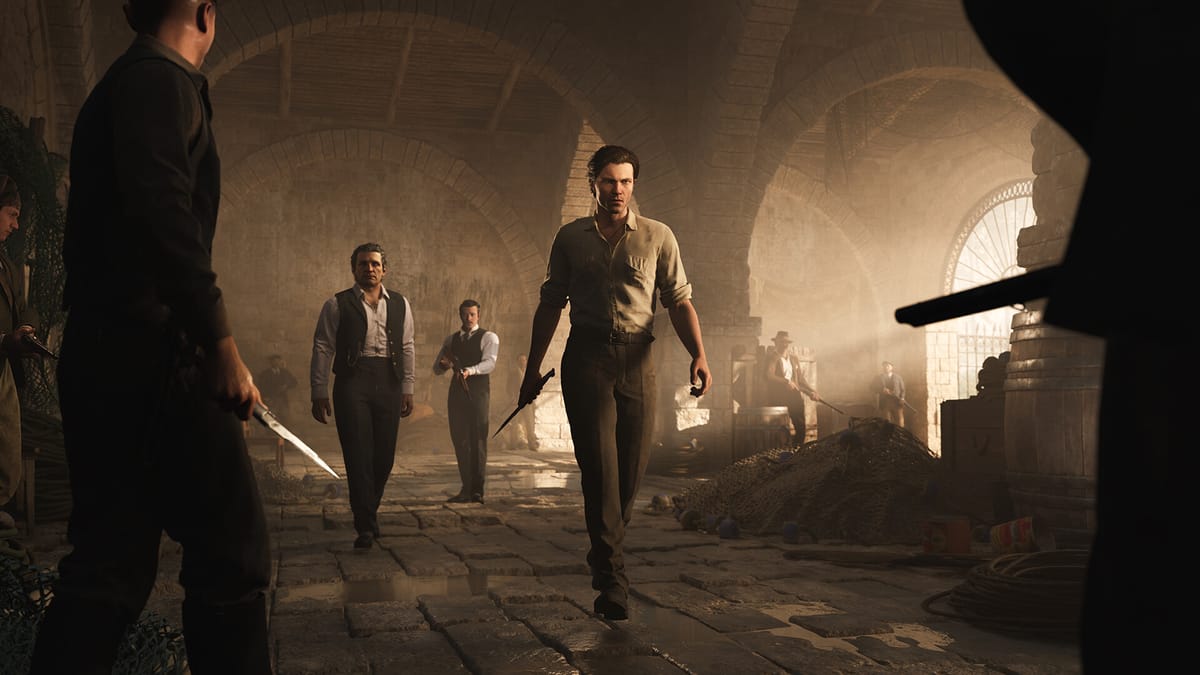
The Mafia series is nothing if not interesting. The first game released in 2002, a year after the release of the medium defining Grand Theft Auto 3, and presented a new model for what the open world crime game could be. Where GTA gave you a world as a playground, Mafia gave you a world as texture: a backdrop to add atmosphere, a grounding for narrative. The fictionalised Chicago, Lost Heaven, was interested in verisimilitude: a well realised location that facilitated some simulation elements. You had to obey the speed limit, or the police would fine you – outside of that, the wanted system was what you'd expect – and attention was given to the handling model to make it seem realistic. The world didn't exist for you, it was the world you lived in and it was the vessel for a mostly linear game. You don't go out and explore, you drive between missions but doing so gave the story heft. Ahead of its time, in a way, as walking simulators and beyond now rely on the benefit a narrative gets by just letting you interact with a space.
In 2010, Mafia 2 released into a gaming landscape of normalised open world games. The genre had codified and it had moved into the GTA direction, and was just crystalising further as defined by Ubisoft's open world template. Mafia 2 once again adopted an open world as a backdrop, effectively so. It aided the purposefully prosaic missions of the early game where you really felt placed in the city. This wasn't a game where you would go out and do activities but you now could visit shops, fill your car up with petrol, grab a bite to eat. Just a light interactive layer where the goal is still to enrich what the Mafia games do: immerse you in a narrative. You may not have a world full of stuff to do but you will remember that drive across the bridge from your house in the final act, a journey that conveys how far you've come from the start. The third game (Mafia 3), though, is an outlier. The series caved and became traditional open world. Mafia 3 is a fascinating, systems heavy game that, yes, is plagued by repetition but actually does more with its open world than most games. The open world mechanics tie nicely into the themes and the story and, though it garnered a mixed reception, it was a damn impressive game in spite of some structural concerns.
Mafia: The Old Country is positioned as a return to roots. It's from Hanger 13, the team behind 3. but – most importantly – the team behind the 2020 Mafia 1 Definitive Edition (a remake of the original game with a dramatic visual overhaul). That remake certainly laid the path for The Old Country, another game set in a world but one where the world is a backdrop – more so than ever. This time, the series has left the USA and we find ourselves in Sicily, in a narrative that spans the early years of the 1900s. Sicily is stunningly realised, presented as an open map but demarcated out through linear missions. The game follows the Mafia 1 and 2 narrative template of down-on-their-luck individual who, due to a mix of skill and resourcefulness, finds their way into a mafia family. The resulting narrative is them rising through the ranks, somewhat, and learning the way of life. The Old Country isn't a rise and fall of a mobster story in the same way its predecessors were, though. The Old Country is a love story, which (as the primary focus) still feels quite refreshing as the narrative thrust of a mainstream, studio video game. You play as Enzo, who starts the game as an enslaved mine worker, before escaping into the mafia life and falling in love with the boss' daughter, Isabella. It's a spin on the 'you can get in but you can't get out' mafia trope, a narrative drive being how they are going to leave the life behind and head to the US to start anew. It all goes where you would expect, to a fault, but it is executed well at each point and the characters are strong.
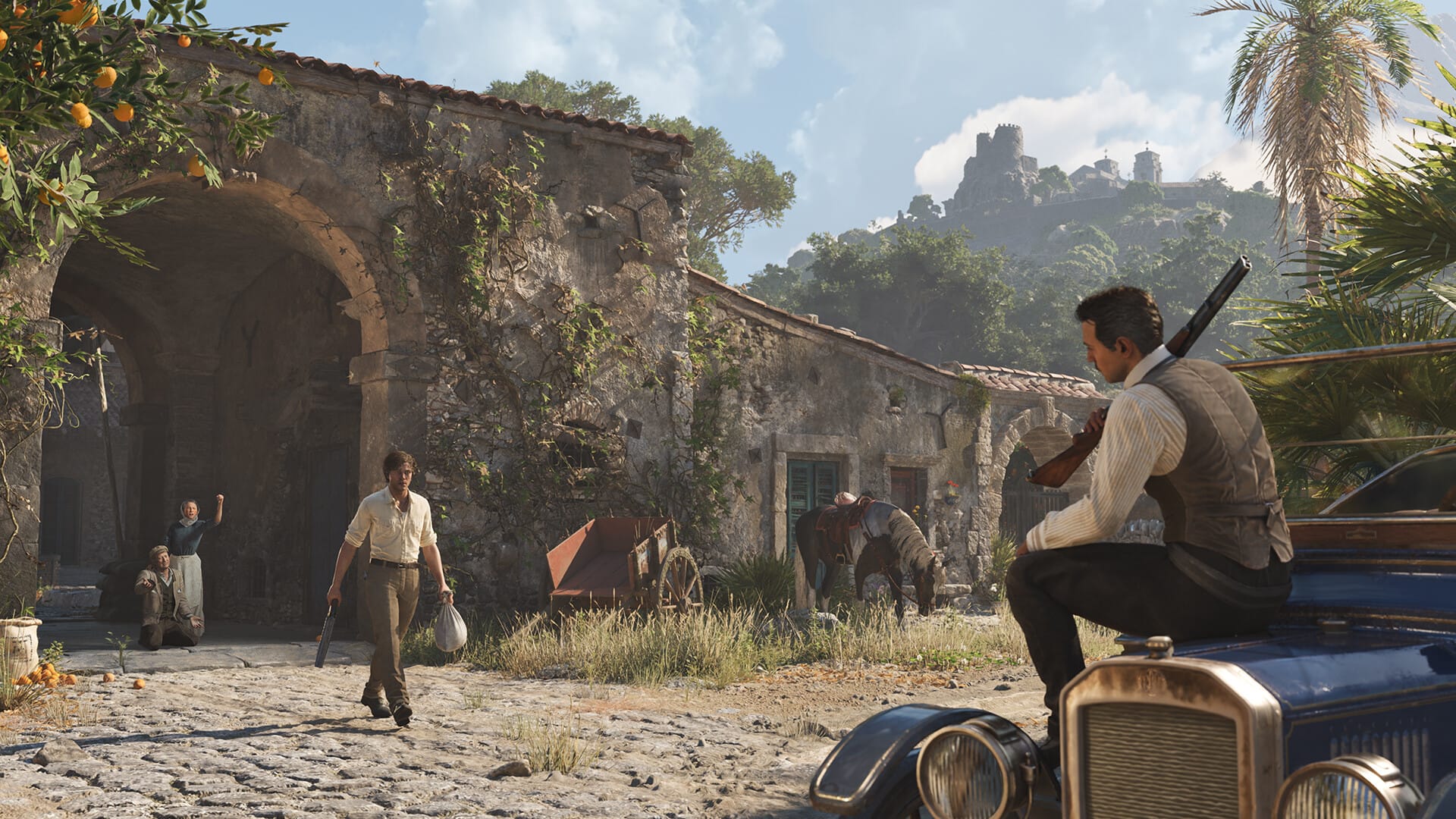
The deliberate pacing really stands out, and is truly additive. This is a smell the roses kind of game, ameliorated by a relatively short, around-10 hour runtime. Like Mafia 1 and 2, the opening missions are about menial tasks and place setting. It is going from place to place, having conversations and doing labour – be it mine labour or the actual day-to-day work of a mafia underling. There's a really interesting early narrative juxtaposition that frames your character nicely. You go from abused worked to strike breaker. In the first mission, you are almost dying in the mine – suffering alongside the other workers – but one of your first mafia jobs is to go and suppress a worker's strike. The mafia are still a bit romanticised here – or just in line with cinematic expectations – but the game does a good job of presenting what you actually do, and the moral discomfort here. The narrative has this tragic structure, satisfyingly so, and this class traitor arc at the start plants that seed very well. Though the overarching narrative is a touch rote, there is a strong presentation of power throughout the game. There are no police patrols here, that's because (in the Sicilian countryside) you basically are the police. You are enforcing law and protecting power, which is modern policing. The story that unfurls is about the military police's grasp on the game's only major town and smartly presents the police and the mafia as battling (yet overlapping) institutions.
As you go through the game, the open world is a transitional space. You drive across it from mission to mission and that is its main role. There are a couple of shops but these are only open at very specific times. The world exists as a large level, not as a sandbox or play space. It is successful as this, another element that elevates what would be an otherwise quite simple story. The added immersion really helps and the beauty of the game world intertwines with the aching romance and tragedy of the narrative. Driving to a mission adds to the necessary verisimilitude, it makes it feel like you are living a life – going out and do something – rather than just funneled through levels. There is space to breathe that aids pacing and the game's story is about this place as much as its characters. There is a tactile relationship with place that separates this game. A select few mechanics lean into this. For example, you can loot bodies after you dispatch your foes. It makes you stop and an added interaction does really sell this tactility. You pick up bandages, ammo and maybe a resource that means you can sharpen your knife to open locked boxes. None of these are that meaningful but they are pace changing and lightly deliberate. This is matched by a shooting model where, though it' a cover based shooter, you aren't just stopping and popping. Guns take a second to steady and aim, the same is true for your foes, so there's this almost turn based, methodical rhythm to combat. To tie this all together, these mechanics all give The Old Country a purposeful feels. The slowed pace matches the narrative and aids it but giving you a few bits of realism that place you in the world just a bit more – but they are never much, kept light so that storytelling can still take the fore.
That being said, the game isn't quite as good as its intent. Gunplay is satisfying, the rhythm of shooting is really enjoyable, but enemy AI is terrible. Actually shooting may feel great but gunfights disappoint due to enemy behaviour. Enemies wait to be shot, will walk straight at you and in general don't behave in very dynamic ways. The game really is at its best when it feels like a world in miniature, a diorama, these small but well realised mechanics that focus on realism. There are simulation edges to it and this slight touches go so far. Enemy encounters scupper this, somewhat. Especially true as you can often stealth your way round. It's the most rudimentary crouch-walking stuff (with loads of corpse baskets to throw bodies into). The uninspired AI makes stealth bland. It's always better to start shooting and you will just wish the game could feel more dynamic – especially considering Mafia 3 did really feel that way. There are also too many vestigial mechanics. You can buy new cars, horses and there is an upgrade system. You have a rosary that gives you stat buffs. Yes, God is real in The Old Country and he lets you reload rifles slightly faster. It's classic video game stuff of bland, marginal upgrades. The game would be better without it, as this system gestures towards a larger game that isn't within its scope. Buying cars and having these shops is the same. You keep collecting money but you can only spend it at a few points – which means the game is designed in a way that any upgrades aren't at all necessary. Mechanics like this also make the open world feel lacking, in a way it actually isn't. These are aspects that belong to an open game, one with player freedom as opposed to a curated experience. They are vestigial in a way that does negatively impact the whole, damaging the cohesion the game works so hard for.
In the end, the game is a qualified success. The deliberate slowness is so well done, a game that makes you carefully spend time in a space and that focuses on liminal or transitory interactions – to great effect. But then there are just so many parts that get in the way. You just don't need a repeated knife-fighting minigame (with related upgrades and different knives you can buy) that just plays out the same way every time – half way through, there's a struggle, and you just employ the same tactics to get it over with. The gamey elements of The Old Country too often just feel lacking. It is a stripped back experience that needed to strip back even further. The final package still reaches towards something it isn't and lets down due to this. Enemy behaviours don't let combat sing; progression hooks are leant into too far and are totally pointless and it is all very predictable. When the game is immersing you in a warmly familiar narrative, being so much better just because you can interact with it, it's great. When it plays to its strengths, this is very impressive: well acted, wonderful music and stellar aesthetic design. It just doesn't play to its strengths enough and feels ultimately conflicted.


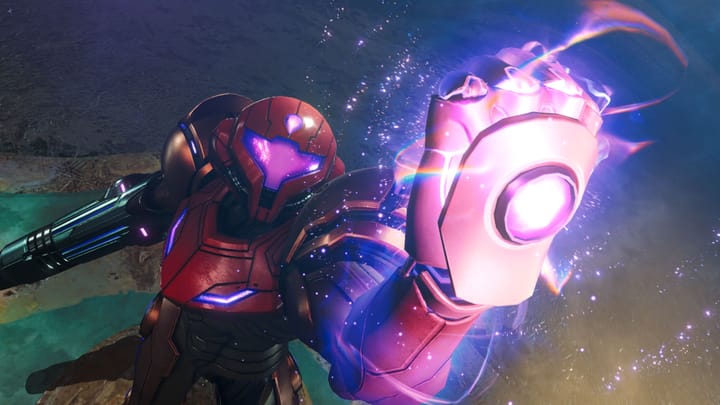
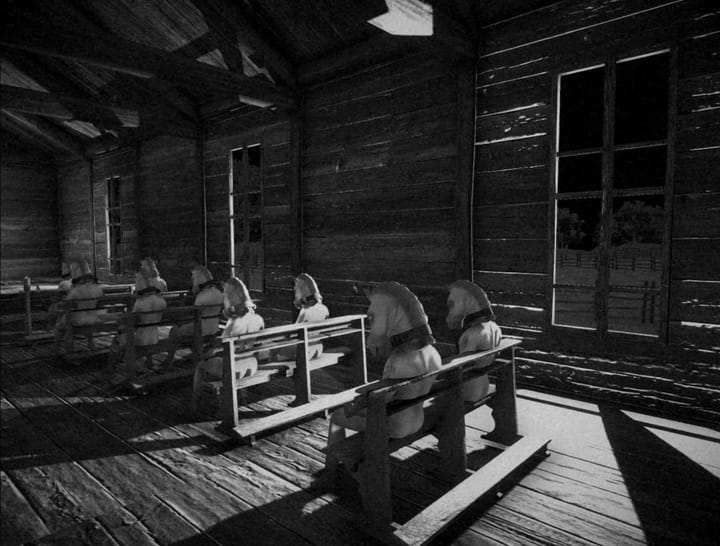
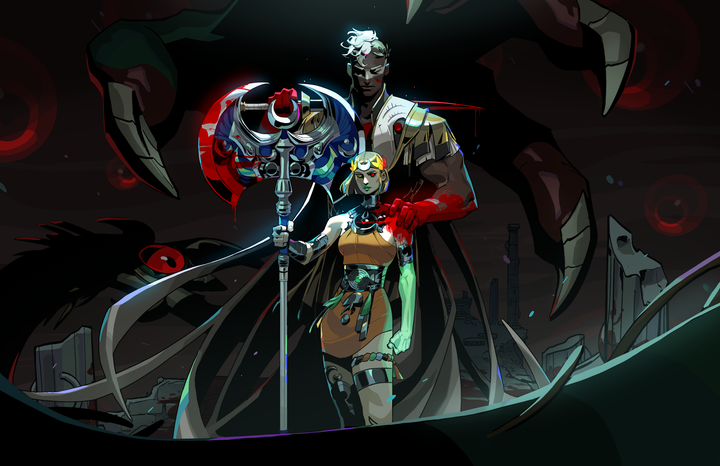
Comments ()